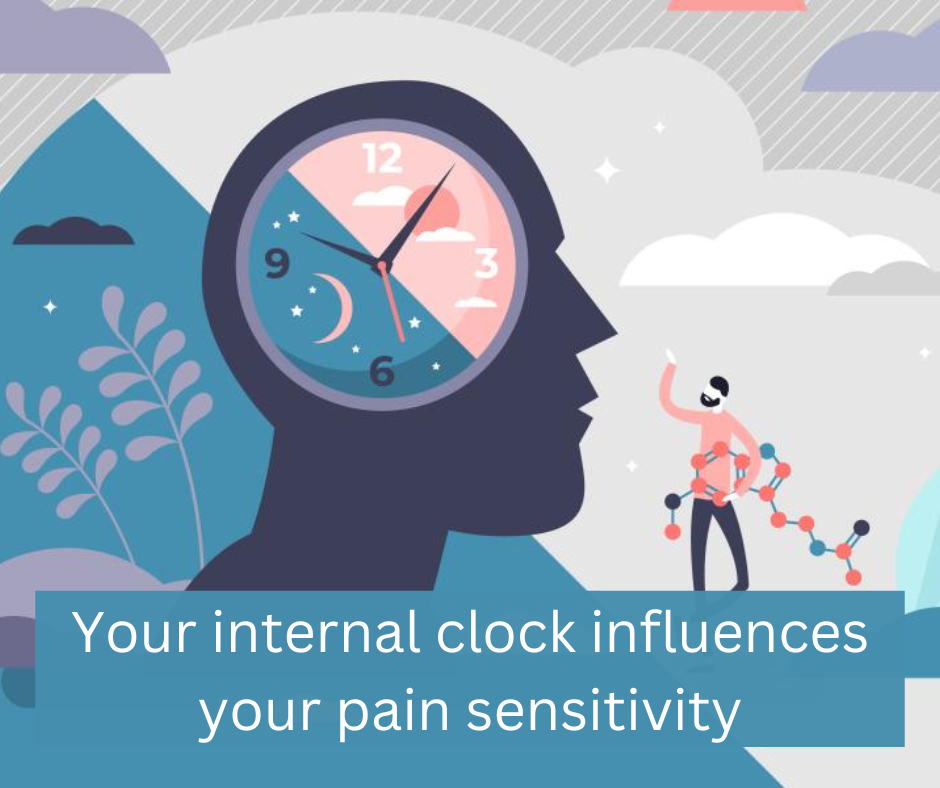 Researchers in France recently looked at the impact of the circadian clock (your body’s internal clock that controls the natural sleep-wake system) on pain sensitivity. They conducted heat sensitivity testing in 14 healthy participants over 56 hours. The first 22 hours followed their normal sleep/wake cycles and meal times, but the following 34 hours the participants were kept awake with minimal physical activity, consistent low light levels, and lying propped up in bed while receiving water and food at hourly intervals. The researchers found that sleep deprivation did increase sensitivity to painful stimuli, but the circadian timing had a much stronger impact on pain sensitivity. The subjects were most sensitive about an hour before they reached their peak sleepiness and then became less pain sensitive following their natural circadian cycle, despite not getting sleep. Thus abnormal sleep cycles and circadian rhythms could worsen pain sensitivity and thus emphasize the importance of good sleep habits.
Researchers in France recently looked at the impact of the circadian clock (your body’s internal clock that controls the natural sleep-wake system) on pain sensitivity. They conducted heat sensitivity testing in 14 healthy participants over 56 hours. The first 22 hours followed their normal sleep/wake cycles and meal times, but the following 34 hours the participants were kept awake with minimal physical activity, consistent low light levels, and lying propped up in bed while receiving water and food at hourly intervals. The researchers found that sleep deprivation did increase sensitivity to painful stimuli, but the circadian timing had a much stronger impact on pain sensitivity. The subjects were most sensitive about an hour before they reached their peak sleepiness and then became less pain sensitive following their natural circadian cycle, despite not getting sleep. Thus abnormal sleep cycles and circadian rhythms could worsen pain sensitivity and thus emphasize the importance of good sleep habits.

